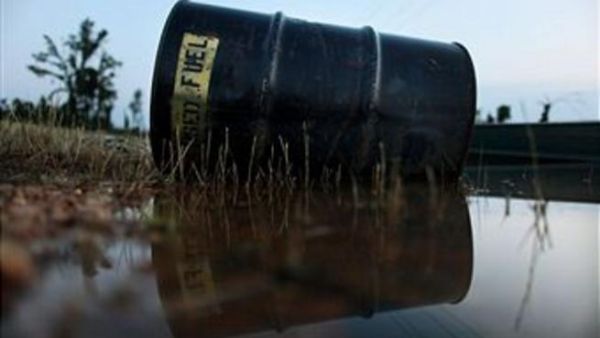With petrol prices on an upward spiral, the head of the Commerce Ministry’s Competition and Consumer Protection Service, Froso Hadjilouca, yesterday said the service was monitoring fuel prices daily to ensure there was no profiteering.
Hadjilouca said petrol stations were free to charge whatever they wanted, though the minister has the right to intervene if the prices are deemed unjustifiably high, taking into account local and international conditions.
“The oil companies receive new loads every week to 10 days,” she said. “From there on, we take the price lists from the customs department and the companies, and observe how much it costs the companies and how much they price them. It is true we have seen some intense increases in oil prices of late.” Hadjilouca said. She admitted that petrol stations seem a lot more eager to increase their prices when they go up internationally, than to reduce them when the opposite happens. “There is an imbalance and it lies with the petrol stations,” said Hadjilouca. “Usually petrol stations move immediately when there is an increase, but when there is a reduction, they delay until they get rid of (higher priced) stock.” She added: “The delays are not down to the companies or the ministry.” Hadjilouca said the ministry’s monitoring services were on alert, “because we too are concerned about this continuous increase”.
In an announcement last month, the ministry said fuel was expensive the world over, especially in recent months due to troubles in the Middle East. But it said EU stats showed Cyprus was the second or third cheapest country in the EU “after taxes”.
A lot has been said about the fact that petrol stations seem to be in cahoots on prices as the difference between stations is always around two cents to three cents per litre. Currently, Unleaded 95 costs between €1.38 and €1.41 per litre, depending where you go.
A spokesman for Lukoil yesterday said the companies and petrol stations had no choice but to offer similar prices. “We can’t impose higher prices because the consumer will punish us,” he said.
Petrol station owners feel they bear the brunt of consumers’ frustration, when they are the ones making the least profit, they claim. The deputy head of the petrol station owners’ association, Spartiatis Stathis, told the Cyprus Mail that stations were closing down islandwide as they were no longer viable.
“In the past two years, from around 280 petrol stations, 55 have returned to the oil companies as they can no longer survive,” said Stathis. “There are now another four closing down. If the owners were making as much money as people are being led to believe, would this be going on?”
Stathis was adamant that there was no price fixing, saying this was a sore point for petrol station owners. “We have repeatedly asked for a specific formula for our pricing so we can avoid these accusations, but even though (former Commerce Minister Antonis Paschalides promised to create a committee with our participation to be in charge of regulating prices, this never materialised,” said Stathis.
As of late, he admitted fuel prices were constantly on the rise. But he echoed the Lukoil spokesman in saying he had no choice but to observe competitors’ prices and impose similar ones.
“Last Monday, I imported a more expensive load but couldn’t increase my prices until Thursday, when everyone else started increasing theirs,” he said. “If I hadn’t, my regular customers would be wondering why I was charging them more and I would lose clientele. Just by doing so, I lost over €300. Are you willing to lose €300 in four days?” He added: “The problem is that the state takes 60 percent tax. Owners also have to pay a percentage on credit card payments, and on average €45,000 a year in electricity and wages.
Stathis said a company that buys fuel on credit from his station paid around €300 in 2008. This has increased to €550 today. He also said that while he wrote off €1,000 in bad debts in 2008, last year this figure was €19,000.
The only way for them to survive, according to Stathis, is for the government to reduce the tax and impose restrictions on the number of new stations.








